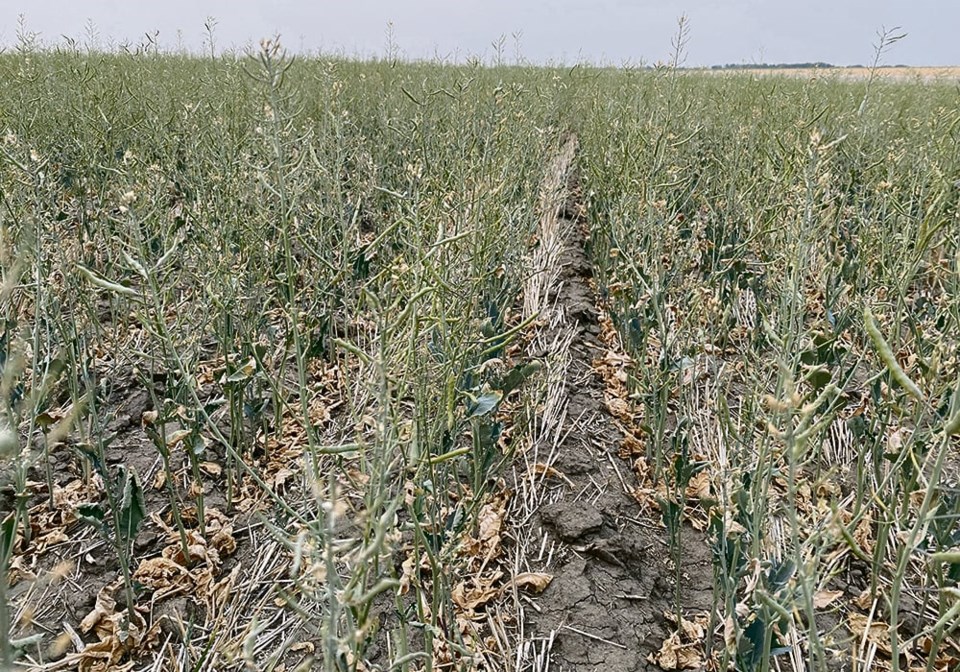WESTERN PRODUCER — Crops often face harsh growing conditions and, when faced with challenges, instead of using energy for growth they are forced to use the energy to respond to threats such as disease, extreme temperatures and changing soil conditions.
This switch in focus is known as the growth-stress response trade-off, but little is known about how it works.
Recently, researchers at Nagoya University in Japan discovered the PSY family, which functions as a hormone and that binds to receptors to mediate the switch between growth and responding to stressors. The discovery could enable the stress response to be controlled to increase crop yields.
“There are genes in the plant genome that are potential peptide hormones or receptors,” said professor Yoshikatsu Matsubayashi with the Graduate School of Science at Nagoya University.
“PSY and its receptor, PSYR, were discovered in this research. At first, we had no idea what the hormone was doing but after 15 years of research we were able to clarify that it is involved in the trade-off between plant growth and stress response.”
The researchers focused on three receptors using Arabidopsis thaliana, a small flowering plant known as thale cress. They discovered the PSY family acting as a key to trigger a biological process.
“PSY regulates the expression of transcription factors that control various genes involved in environmental responses,” said Matsubayashi. “The mechanism by which hormones bind to and activate receptors as a key is common to all living organisms and conserved from micro-organisms to animals and plants.”
Transcription factors are proteins involved in the process of converting, or transcribing DNA into RNA.
“The trade-off between plant growth and stress response is common and the PSY family is found in all plant species, including mosses.”
Usually, receptors and hormones can function like locks and keys with the PSY hormone acting as the key. But researchers found in the study that some plant cells did not produce PSY and yet they still had an active stress response. This suggested that rather than activating the stress response, the presence of the PSY “key” in the receptor “lock” kept it switched off.
Hormones are recognized by their target receptors in a lock-and-key system. A hormone, the key, fits exactly into its specific receptor, the lock. If the key fits, the door opens, biologically speaking.
To test the nature of stress in a real environment, researchers grew plants under extremely stressful conditions using heat, salt, and bacterial infections. They saw that plants that were deficient in PSY receptors or those continuously fed the hormone failed to respond to stress, leading to reduced survival. The conclusion was that stressed plants stop releasing PSY. The hypothesis was that its absence would induce stress response genes to go into action.
They suggested in the media release that damaged cells reduce the concentration of PSY hormones in the cell layers next to the damaged sites. The lack of PSY triggers the stress response. From the study results, the researchers proposed an important observation that explains why even damaged plants can send messages.
A compromised plant has limited resources. Rather than using energy to try to create a new signal to activate a stress response, the impaired plant cell stops releasing the PSY hormone, which triggers the needed stress response, thus balancing stress tolerance and energy costs. This balanced management of its resources allows the plant to continue to grow while still facing challenges.
“This mechanism makes it possible to artificially control the balance between stress tolerance and yield, which is a trade-off relationship,” said Matsubayashi. “In recent years, an increasing number of crop plants have been grown in plant factories. When crops are grown indoors, it is a low-stress environment and the stress response system that is needed to withstand the fluctuating natural outdoor environment is not always necessary. Generating cultivars with reduced PSY receptor activity in plant factories may lead to higher yields in these controlled environments.”
To reduce PSY receptor activity will require the use of CRISPR gene-editing technology.
“Although destroying the PSY receptor will weaken the stress response, it will also promote growth, which could increase crop yields under conditions, such as in plant factories where environmental stress is low.”
Matsubayashi cautioned that plants that have had their PSY receptors destroyed would not be suitable for outdoor cultivation where environmental stresses are high because their stress response is weakened.
He said because gene-editing is not considered genetic modification, it is not governed by the same seeding and growing restrictions in real world applications.
The research was published in the journal Science.



